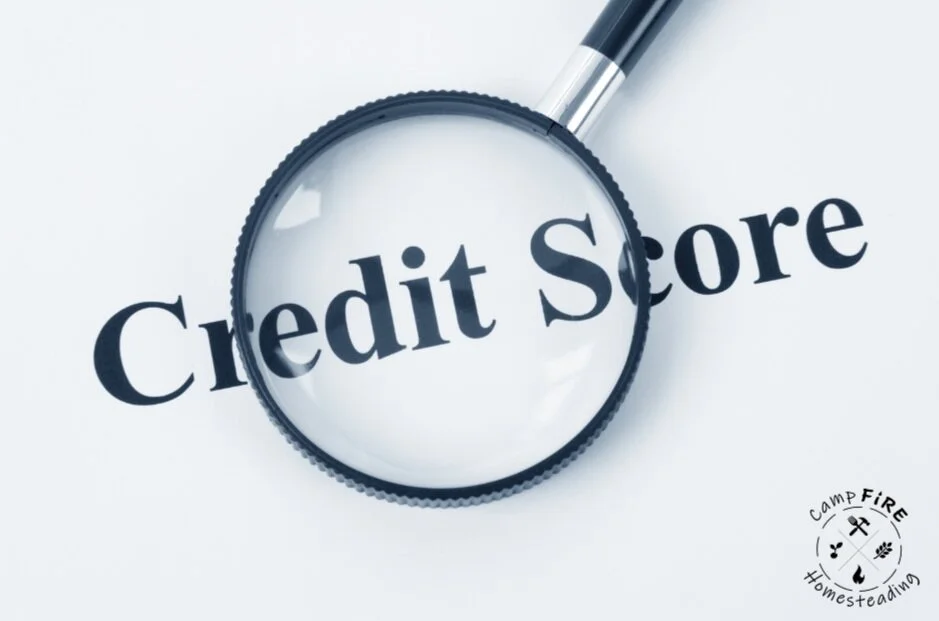Your Credit Score & Being Debt Free: A Closer Look
It is said that understanding begins with a common comprehension of terms. If you have ever experienced an instance of talking past someone in a conversation, you know this to be true. Especially when both parties realize they are using the same term but differing definitions.
The longer our FIRE journey is, the more we realize that FIRE has no hard and fast definition. And if you attempt to solidify one, you will be bombarded by people who are more interested in parsing words and nuances, and injecting their specific personal experience than agreeing on a definition that broadly captures the intent of FIRE. Because FIRE is so subjective and personal, we opt to make FIRE our own and simply refer to the meaning of the acronym itself: FIRE = Financial Independence, Retire Early.
Although we enjoy partaking in the philosophical conversations about what specifically financial independence or retire early means, we typically have found the conversations very quickly leave the arena of objectivity and speed into the realm of subjectivity and emotion.
According to Google, ‘credit score’ is defined as, “a number assigned to a person that indicates to lenders their capacity to repay a loan.”
Simple enough, right? But if you have any experience with conducting financial business, you know that your credit score, earnestly, is much more than the simple Google definition.
For those of you that have more life experience than just high school and college, you know that it is infinitely easier to damage your credit score than improve it. It’s generally understood that things like missing payments, defaulting on loans, having too many inquiries, and not having enough credit history can hurt your score. Like fanatics of a strange game, we are driven to get our credit score the highest we can. It’s even a point of pride for some folks, a badge of honor.
“Great job, you are amazing at being in debt!”
For those who utilize the debt free path to FIRE, you all know something that others may not. This is that NOT being in debt can hurt your credit score.
WHAT!?
That’s right. Paying off your debt and closing out those open lines of credit can be harmful.
In March this year, NerdWallet wrote an article titled, “Why Did My Credit Score Drop After Paying Off Debt?” addressing the reality of the impact of being debt free on your credit score. One of their key findings was a tactic to pay off your debt and prevent it from dropping your credit score: continue to use your credit cards in a limited manner.
Yep… keep going into debt.
This realization made me take a closer look at what exactly your credit score is. We provided a definition above from the authoritative Google but if paying off debt and closing open lines of credit can harm your score, the aforementioned definition can’t capture what your credit score is.
Your credit score is essentially your pass to play the game of finance in life. Don’t believe me? Try to take out a loan with a reasonable interest rate with a 600 credit score.
As you live, the assumption is that you will naturally build your credit history. College loans, car loan, personal finance loan, credit cards, and a home loan are things it is assumed we will have in life at one point or another. Because we don’t live in a world where we save cash for our purchases, this is not an unrealistic assumption.
Knowing this, we basically come to the understanding that your credit score is the grade you are given that depicts how good you are at being in debt. It does make one wonder why it is that this simple definition isn’t used, but we understand that it would then probably drive people to understand that to be good at being in debt, shouldn’t one need to stay in debt?
Socially, we are even encouraged to be in debt. If you have a good credit score, you have almost certainly received promotions for credit cards or low interest loans through more than a couple of institutions. As part of some of these deals, we are offered cash back for food, gasoline, or other purchases.
My personal view is that debt can certainly serve its purpose but should be approached carefully. I would have no issue with prolific debt if we were better educated about how to use it to improve our financial positions. But we are not.
For most people, by the time the gain a decent understanding of what debt is, they are trying to figure out how to get out of a debt hole. What’s disturbing is that most of the mainstream ideas on debt resolution promote things like debt consolidation [taking out a loan to buy up your other debts] or, in the extreme, bankruptcy.
You’ve done it… just own it!
Have you ever wondered why you never see a commercial on TV, in a magazine, or billboard that says, “The road to debt-free living is being frugal… short term pain for long term gain.”
Have you ever wondered why it is that we are able to graduate from high school, and college in some cases, and have no knowledge of, or real awareness of, debt, finance, or how money works?
Have you ever wondered if we are really so financially illiterate on accident?
My personal view is that we are conditioned to be debt slaves. Nearly every aspect of our society promotes the idea of us being avid consumers at all cost, even if it means spending money you don’t have. And similar to school where we have a GPA and standardized tests that score how good we are at proving we absorbed our indoctrination, our credit score is there to grade how good you are at being in debt.
All things considered, I would much rather be debt free and see my credit score drop a few points, than be in debt any day!









